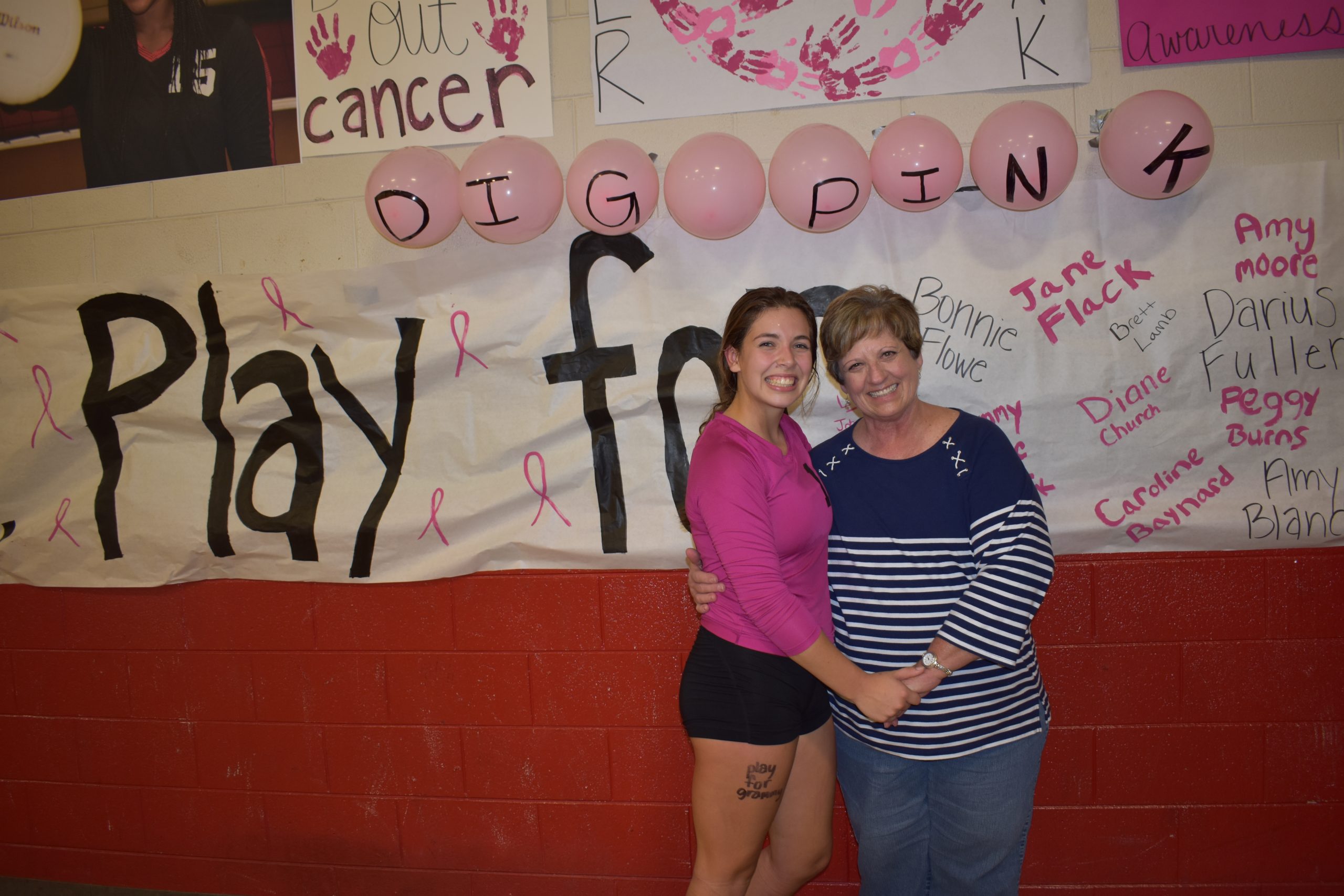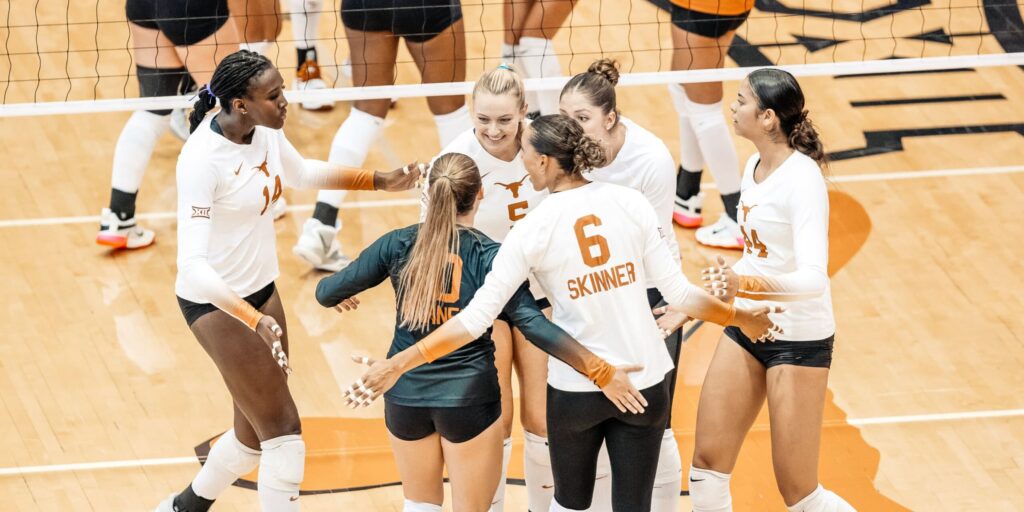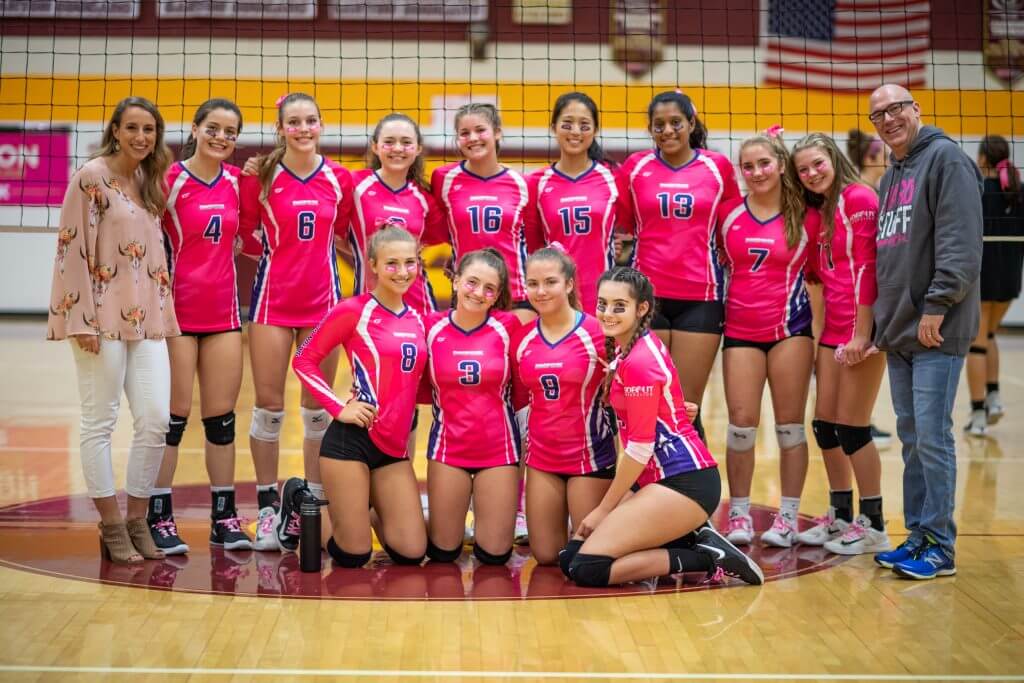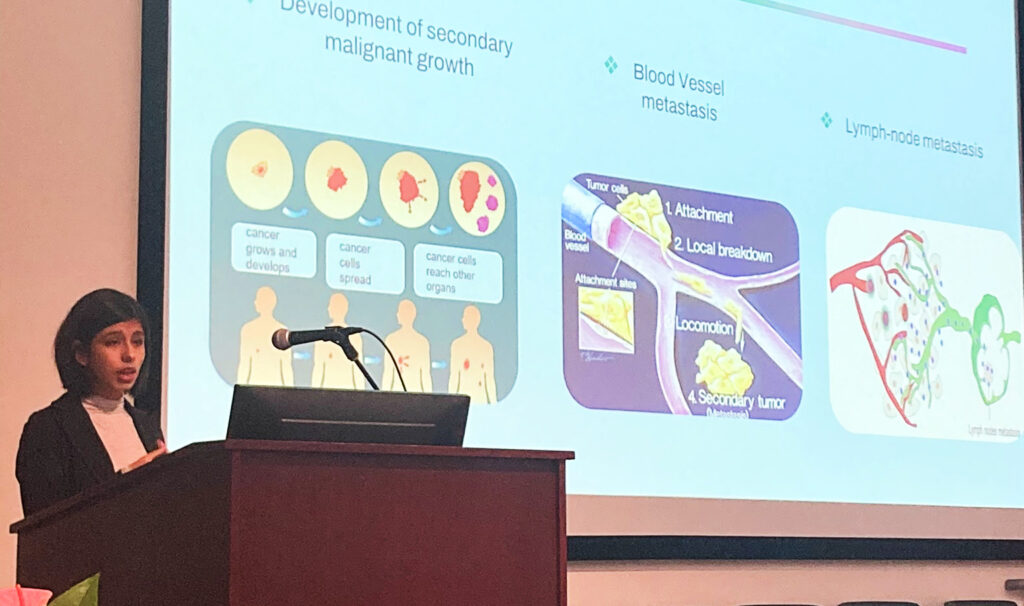I’m Holly Sherburne, a senior varsity volleyball player at East Rutherford High School, and I hosted a Dig Pink Rally on October 11, 2017 in honor of my grandmother who is a survivor of breast cancer and other cancer-impacted members of my community. Through the Ambassador Program experience of researching, planning, and executing a Dig Pink Rally, I have learned not only advantageous skills of delegation and intentional organization, but additionally I have discovered the complexity of Stage IV Breast Cancer and the emotional toll it takes on its victims.
Learning More about Stage IV
Because of my rural community lacking a close-by research facility or a state-of-the-art hospital to treat advanced cancer, I was left with the last option of obtaining educational hours by listening to online seminars through CancerCare. However, I believe I have learned more from these experts than I initially assumed to be probable, and the knowledge has left me genuinely uncomfortable. Stage IV cancer, or metastatic cancer, according to Dr. Grana, is incurable and chronic; at this point, cancer has reoccurred and spread to more vital parts of the body. In other words, there is no hope for being cancer-free when a patient has reached this stage; death is impending and inevitable.
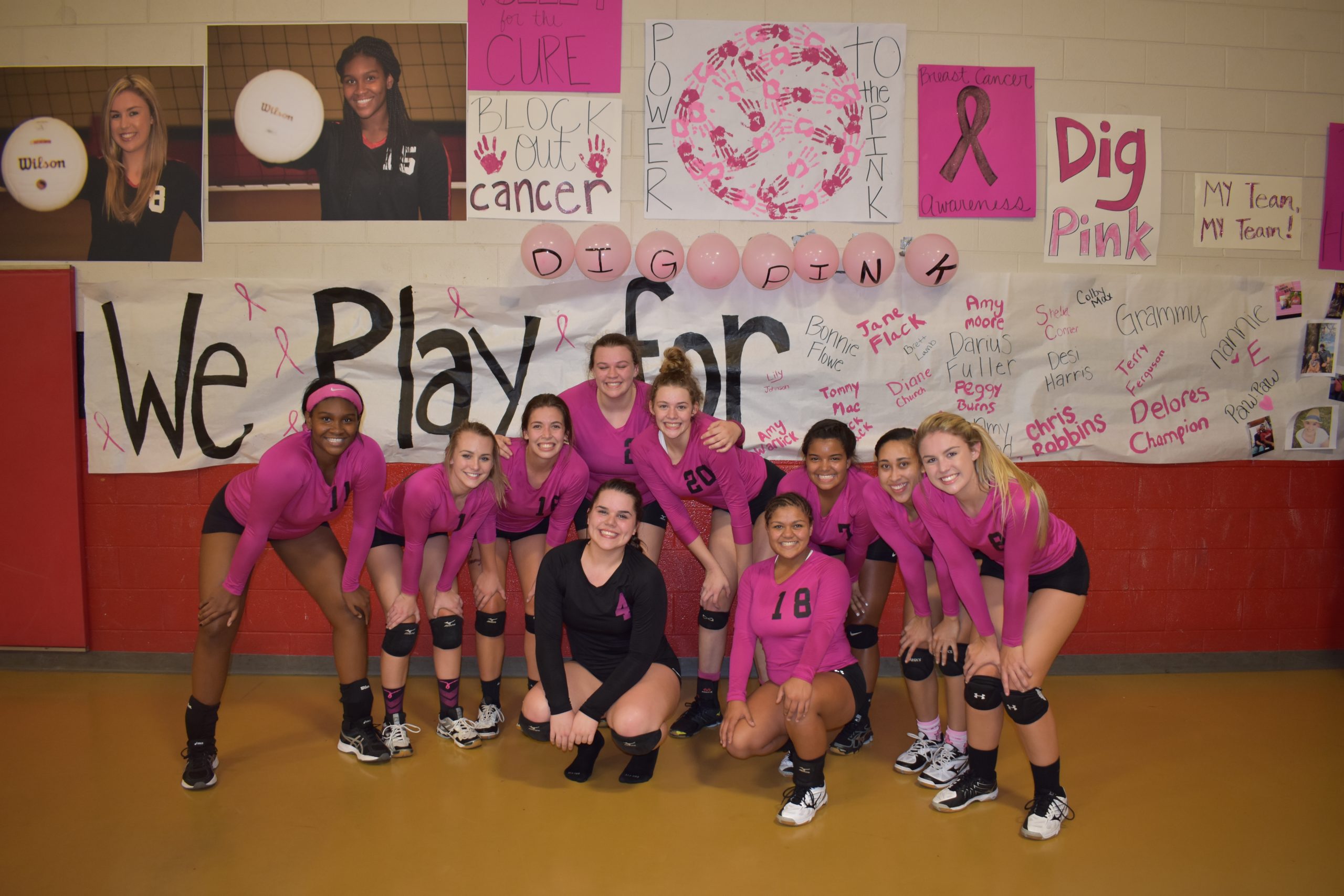
Because of the inescapable fate these patients face, clinical trials are a popular option considering the patient has nothing to lose. These trials, based on Dr. Meyer’s expertise, have three phase options. The first phase is on a case basis observing a new drug that hasn’t been tested on humans before and experiments with dosage. The second phase is on a larger scale experimenting with multiple patients; the doctor has a sense that the drug is effective. The third phase is much more involved including a placebo and control group in order to investigate the effects of an investigation drug. Dr. Meyer believes that case studies with an emphasis on clinical trials should become the new standard of care for stage IV breast cancer research.
Why Stage IV Is Different
In listening to this part of the program, I was hesitant on the ethical boundaries that may be being crossed; however, after more research, it’s been made clear that these clinical trials foster a sense of hope in patients and give them a chance to help others facing the disease that will come after the patients have died.
Now that some of the physical treatment options for Stage IV breast cancer have been examined, it’s equally important to analyze the emotional coping strategies that are available for patients. Dr. Schapira emphasizes, “The important thing is accepting and understanding what metastatic breast cancer is, getting support, and then extending that support to your loved ones.” Accepting death is difficult, and it’s understandable that once a patient is ensured a definite ending soon, there is a sense of hopelessness that leaves the patient void. As Eileen Kastura has recounted in her personal journal, keeping a positive outlook on the diagnosis and continuing to pursue knowledge to instill coping.
Reflection of The Ambassador Program Experience

In my personal research for my senior project, I’ve investigated the coping mechanisms that all terminally-ill patients use to accept their own impending fate, and I’ve found that Dr. Byock’s four statements that matter most in relational health: please forgive me, I forgive you, thank you, and I love you. As Dr. Schapira stated, and Eileen Kastura proved, it’s coping with our loved ones that brings most closure for stage IV patients. Hopefully a concentration of funds into this particular stage of cancer will allow for more time to share with the families and friends of these patients, and eventually obliterate the obstacle of breast cancer for all.
Before this research, I thought that stage IV research was limited to helping those that are already confined in the hopelessness of near death; however, I have learned that we’re in such a vital time of research for this phase of cancer because it directly affects preventive action in earlier stages of breast cancer. In sharing this research with my teammates, English class, and judges of the senior project, I am content in the difference I have made in spreading the knowledge of breast cancer throughout my community as well as the financial impact I have had on Stage IV research through The Side-Out Foundation.
